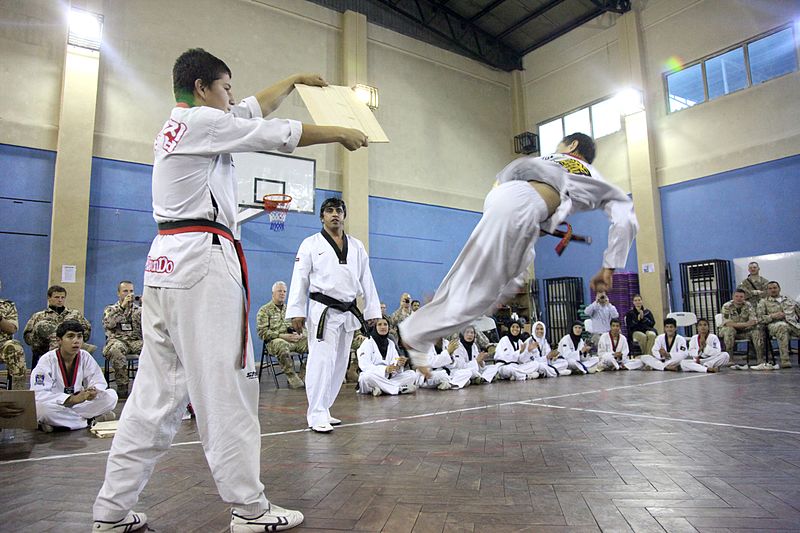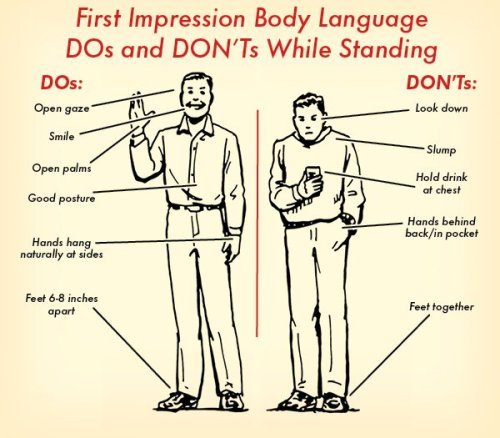This is embarrassing to admit, but I never went on a single date in high school. I was too shy to ask a girl out.
I was an extreme introvert who didn’t even have the guts to ask someone for the time.
Finally, I hit a breaking point and gave myself a challenge: For 90 days, I would force myself to talk to at least one random stranger every single day. I actually logged every conversation in a notebook to analyze how it went.

It changed everything for me and, after those first 90 days, I never stopped. I spent countless weeks, months, and YEARS, practicing, learning, experimenting, and refining what really works and what doesn’t. And I went from being that petrified kid to comfortably talking to random strangers every single day.
Some of those strangers would later become best friends, business partners, and yes, even dates. Without a doubt, this is one of the most life-changing skills anyone can develop. And believe me: If I could do it, so can you. Let me show you how:
- My #1 easiest tip (even for shy people)
- Why asking questions can actually be BAD (and what to do instead)
- Why you need to “act” differently with stranger than with friends
- Why a STRONG start is the key to great conversations
- Easy conversation topics for strangers
- Why building more “columns” is the secret to stronger conversations
- The easy way to master your body language
- Make people love talking to you with one simple strategy
- How to move from “strangers” to “friends” — quickly
- My favorite tip from professional poker players
- Why common advice of “being interesting” is wrong
- How to be the savior while talking in a group
- Avoid this sneaky (and common) conversation killer
- Cool and powerful confidence trick when all else fails
- The TRUTH about overcoming conversation fears and anxiety
- My “Bruce Lee strategy” to take action
- How I put it all together (My personal story)
1. My #1 EASIEST way to build conversation skills (even if you’re shy)
People often ask, “How do you talk to people you don’t know? What do you do?”
But they’re actually skipping the easiest way to improve!
Instead of talking with complete strangers — which can be very stressful if you’re inexperienced — talk with people who are all already paid to talk to you!
Think about it: In daily life, there are many opportunities right in front of you to practice and improve your skills without worrying about a “bad response.”
- Baristas
- Waiters and waitresses
- Mail / delivery staff (FedEx, UPS, postal workers, etc.)
- Retail clerks
- Gym employees
- Office workers, secretaries, concierges, etc.
All of these people are basically paid to talk to you! Are you taking advantage of it?

Ask them how their day is. Ask them about their weekend. Ask for their advice or suggestions. Have an actual conversation and get to know them on a first-name basis. The truth is many of these people are starved for good conversation with customers.
Believe it or not — and keep this in mind as you read this article — good conversation with strangers is extremely rare.
Also, because they talk with strangers EVERY DAY, they’re probably pretty good — learn from them. Listen to what they say and how they interact with others. (Even if you’re “advanced,” you can still learn something!)
It’s crazy how most people don’t tell you this. Why? Because they probably just want to hit on girls. (Sure, these skills can help, but if that’s your only goal, good luck.)
Now, you’ll get to practice your skills in a relaxed and low-risk environment. Oftentimes, they’ll help keep the conversation going too!
PS It’s a great tip when you travel too!
2. Why asking questions can actually be BAD (and what to do instead)
Virtually every article on the Internet about conversations tells you to ask questions.
Sure, it’s OK to use a few, but relying on them is actually a bad tactic:
- Questions take value. Rather than sharing anything unique about yourself, you just ask questions to perpetuate the conversation.
- It creates “question trains,” where you ask question after question until it becomes an interrogation. “What do you do? How long have you been doing that? What do you like about it? Why did you choose it?”
- It forces conversations. Often, people ask questions to try to hook someone into talking to them.
Instead, make more statements.
Statements are opportunities for you to share something about yourself, your personality, and your perspective. It lets you to talk about your experiences and how you feel about certain things.
Even better, when you make a statement and they respond, they won’t feel like they’re being “forced” to interact with you. Instead, they’ll voluntarily talk with you because they feel comfortable opening up.

Bad Example:
You: “Where are you from?”
Them: “New York.”
You: “Where in New York?”
Them: “Queens.”
You: “What’s your favorite thing about living in New York?”
Them: “Uh, I don’t know.”
Here, you’re making them do all the work without sharing anything about yourself or even hinting at why you’re asking. (You also asked three straight questions; the last one a really big one that takes a lot of work to answer.)
Good Example:
You: “Where are you from?”
Them: “New York.”
You: “I’m jealous: I love New York. I’m always amazed how much there is to do there.”
Them: “Yeah, it’s a really great city. I love it too.”
You: “I never got cussed at though; so I never had the real New York experience.”
Them: “Haha, I yelled at someone last week.”
You:”That’s hilarious! I gotta hear about it!”
Them: [tells a story]
Here, you shared about yourself, your experiences, and your perspective. You only asked one question and built off it. You never forced them to talk to you; instead, your statements invited them to respond.
That, ultimately, is the goal: Getting people to feel comfortable opening up about themselves. And the only way to do that is for you to open up first.
Now, I’m not saying that you should never ask a question. (That would be weird.) But I am saying that you should try to limit how many questions you ask.
If you do feel like asking a question, make sure it’s an interesting one: “What’s your favorite thing about living in New York?” vs. “What’s the easiest way you can tell someone is not a native New Yorker?”
Ready to upgrade your conversation skills? I created 5 free life hacks to boost your results. Get them here:
3. Why you need to “act” differently with stranger than with friends
Imagine telling a random stranger, “It’s a beautiful day,” in a monotone voice with a dreary expression on your face.
Weird, right?
Here’s why I bring it up: When you first talk to a stranger, they’re generally not closely listening to what you say; they’re assessing your vibe and energy.
Are you friendly? Dangerous? Happy? Creepy? (That’s how our brains are wired.)
When you initiate, don’t just start with the energy level you’re currently at:
Always have a little more energy than the other person.
Turn up your vibe so it’s slightly “higher” than them. That way, you have enough enthusiasm, energy, and passion to elevate them and draw them in without going overboard (i.e. having way too much energy compared to the other person).

Next, remember it’s not WHAT you say, it’s HOW you say it.
That’s why you also should “overact” so your emotions are clear.
Add more tonality to your voice, put more feeling behind what you say, and be more animated. (ex. saying “I love this place…” vs “I LOVE this place!”)
Here’s why:
When you’re with your friends, you could slightly lift one eyebrow and everyone would know how you’re feeling. But when you’re talking with someone who’s never met you before, that context doesn’t exist. So, by overacting, you can be sure you’re understood.
It might seem weird to YOU, but to the other person, it seems… completely fine.
(This is even more important if you’re talking to someone via video or phone.)
4. Why a STRONG start is the key to great conversations
People often initiate conversations weakly — they’re halfway in and halfway out, talking with their body facing away or while looking at their phone.
But when you’re timid and hesitant, no one leads the conversation. The other person will wonder, “Do they want to talk to me? Are they even talking to me? How do I respond?”
Being tentative means you’re afraid to put yourself out there. (Usually, this is done to protect yourself from outright rejection because you didn’t “give your full effort.”)
Worse, because it started so poorly, the overwhelming odds are it won’t continue.
Instead, start a conversation strong — like trying to break a wooden board in karate.
If you commit fully, you’ll succeed; if you have doubts, you’ll fail.

Go all-in and put your full attention and energy behind your words. Make it crystal clear you are initiating conversation. Commit to talking to them.
It shows a lot of confidence and lets the other person know your intention.
This tip alone will skyrocket your odds of success. I assure you that, when you make a full commitment to talk to someone, you will almost never be brushed off.
Here are suggestions on “karate chopping” your way into a conversation:
- Point your body towards the person
- Maintain solid eye contact
- Speak at a good, audible volume
- Don’t pull out your phone or try to distract yourself
5. Easy conversation topics for strangers (and what to avoid)
The most common questions I get are, “What do you talk about? How do you start the conversation? What do you say?”
Often, people tell you to discuss:
- The other person
- Hobbies
- The location
- The event
- What’s going on around you
While there’s nothing wrong with that, just keep this rule in mind:
Only talk about things you are interested in.
Many people talk about things they honestly DON’T care about. They’ll ask about something, but have no interest (ex. asking what someone is reading if you don’t even read).
But when you talk and ask about things you’re not interested in, it shows insincerity and that you’re forcing conversation. (Worse, you have to feign interest.)

Instead, talk about things that you’re actually interested in. Ask questions because you’re interested in the answer, not because you’re trying to push a conversation. (This also helps you avoid “running out of things to say.”)
You: “What are you reading?”
Them: “[name of book].”
You: “Oh cool, I heard good things in a book review. I was going to start after I finish [name of book]. Is it as good as they say?”
Them: “It’s incredible so far. I really like it because…”
By the way, don’t worry too much about “what to say.”
Usually, when people ask that, they’re really looking for a “magic bullet” — something that works 100% so they won’t be scared.
But it doesn’t exist. So don’t get hung up on “not knowing what to say.” (Later, I’ll show you how to overcome your fears.)
6. Why building more “columns” is the secret to stronger conversations
If you’re talking to someone about a certain topic (ex “travel”), many people would keep talking about it: “Where have you been? What was your favorite place? Why?”
But I disagree.
Think of conversation topics like columns. If you only have one column in your dialogue, there’s very little foundation. But if you expand into different topics and add more columns, you’ll have a much stronger conversation.
During conversations with someone you just met, regularly change topics.

Doing this is actually a lot easier than it sounds (and shouldn’t be abrupt). While talking about travel, maybe they say they love Venice for art and food. Now you can talk about art or food, which in turn might lead to “movies” or “language” or a story.
As you cover more subjects, you uncover a wider range of who they are. Then, ultimately, the common thread will be you and them and the topics become irrelevant.
7. The easy way to master your body language
Did you know roughly 70% of your communication is non-verbal?
This just shows the importance of a good vibe and using your body to do the talking.
But most body language advice is too much like a checklist:
Make eye contact. But not too much. Stand up straight. But don’t be stiff. Smile. But don’t overdo it.

It’s already hard enough to talk to someone you don’t know. Now you’re juggling 18 different thoughts about what to say, what to do, and your body language.
Instead, focus on how you should FEEL because, if you FEEL the right way, you’ll naturally have the right body language.
So, when you’re talking to someone, just feel like you’re the host of a party.
The host of the party isn’t murmuring or stuttering over their words. They aren’t standing with slouched shoulders, their hands in the pockets, or their arms folded. They’re open. They’re relaxed. They’re smiling warmly and genuinely.
They also don’t look like those “alpha guys” who purposely sit with their legs and arms wide apart to “show dominance.” (Confidence isn’t about making yourself look “dominant:” Confidence is about trusting yourself to be able to successfully handle whatever comes your way.)

Start feeling like the host at a party and your body language will change ASAP.
8. Make people love talking to you with one simple strategy
While everyone teaches you to “listen,” I’ll go one step further.
During a conversation, someone might say something unique or interesting. Don’t just nod…
Appreciate what they did and explain why.
When someone tells you something awesome, unique, deep, or detailed, you MUST appreciate what they said. It shows that you value their input. It helps them feel comfortable and safe to open up about themselves and share experiences, feelings, and emotions with you — while you do the exact same thing.
But if you skip that step, you’ll show that you don’t really care!
I cannot stress this enough: This is how you have great conversations.
Years ago, I was at a Starbucks, taking a break from a cross-country drive, when I saw three guys hitting on the female baristas. During their “chat,” a barista said she lived in Okinawa for three years teaching English.

A good-looking guy, I swear to God, said, “Nice. So what time did you open today?”
WHAT!?
Can you imagine how much courage it took to make that life decision? Or the learning, culture shock, and challenges she endured? YOU HAVE TO APPRECIATE THAT!
Needless to say, they left empty-handed. (Funny thing was, I ended up talking to the baristas, having a great conversation, and getting a free drink.)
Do this and watch how much happier people are to talk with you.
9. How to move from “strangers” to “friends” — quickly
What’s the best way to start a conversation with someone you DON’T know?
My answer:
Just act like you know them.
Often, people start shyly, asking about superficial things until they feel comfortable. But that leads to hesitant conversations with a weak vibe.
Instead, assume the conversation.
Talk to them like you know them already. Assume they will talk to you. Act as if the conversation is already going on.
Sometimes, when I’m in line at a coffee shop, I’ll just turn around someone and ask someone straight up, “So, what are you getting?” (My tone of voice assuming we know each other and that they’ll tell me the answer.)

Give this a shot the next time you talk to someone. By skipping a step in the “getting to know you” phase, you might find that you’ll get to know them a lot better!
10. My favorite tip from professional poker players
Did you know great poker players only play about 20% of the cards they’re dealt?
They actually fold the rest and just wait until they get the right cards.
This is a very good conversation strategy.

Many people think, to get better at conversation, they need to talk to EVERYBODY and practice. But that is a recipe for burnout and frustration.
Instead, much of your success happens BEFORE a conversation starts.
Take a moment to look at the person that you’re about to talk to. Do they seem nice? Do they seem friendly? Do they have a relaxed expression on their face?
When you’re starting out, try to only talk to people who seem open, kind, and friendly. (Often, you can get a feel just by taking a few seconds to look at them.)
This step, by itself, will save you a lot of unnecessary rejections and difficult conversations.
11. Why common advice of “being interesting” is wrong
Too often, people try hard to be “interesting.”
They boast about all the “cool” things they’ve done to make themselves look “good” so others will be impressed and want to talk to them.

This, however, is NOT an effective strategy. Why? Because the secret to GREAT conversations and connections is to make OTHER people feel cool and interesting. (Also, it can make you seem arrogant and boastful, which is never a good thing.)
Don’t be interesting; be interested.
Take an interest in the other person. Be fascinated with what they do. Make THEM the star of the show. When you take a genuine interest in others, great things can happen.
Think about it: Your friends aren’t your friends because they think you’re “cool.” It’s because you care about them, you support them in countless ways, and they trust you.

I encourage you to take a backseat to others and see how it revolutionizes your ability to connect with new people.
Most surprising of all, if you do this right, others WILL find you interesting. After all, it’s rare to encounter a person like this. Also, only REAL interesting people don’t need to take center stage.
Even if you ARE interesting, it’s better to reveal it only after they ask because it makes them feel like, “This ‘big shot’ wants to listen to me and isn’t trying to boast!”
12. How to be the savior while talking in a group
Maybe you’re at a networking event, trying to build your career, and you’re talking to four people.
Many would instinctively feel they need to talk a lot in order to “control” the group. Or that they need to “put on a show” to get everyone interested and excited.
But the power isn’t in the performance; it’s in the audience.
Instead, when you’re in a group, share the conversation.
Get them involved. Get them talking about what THEY like. Let everyone have the opportunity and space to share their own experiences, feelings, stories, etc.

Pass the baton. “What do you think? How about you?”
If I’m in a group and there’s one person who’s monopolizing the conversation and not letting others speak, I’ll actually jump in and redistribute it to the people who aren’t talking so they can get involved.
That’s how you have a great group discussion! (P.S. That’s also how you make friends!)
13. Avoid this sneaky (and common) conversation killer
This advice goes against what a lot of people would consider “confidence.”
But if there’s anything I’ve learned after having thousands of conversations, it’s this:
To have better connections, give up the need to be right all the time.
For example, correcting people when they’re “wrong.” Arguing against someone’s opinion if you don’t agree. Maybe someone says, “I love that restaurant,” and you reply, “Oh, I hate it!”

It seems small, but it creates friction and hurts momentum.
The desire to be correct is really insecurity. After all, if you were “confident” of your opinion, would you feel the need to make sure everyone else agrees?
Get comfortable with not having to be right all the time. Even if I don’t agree with someone, I will go with it. That doesn’t mean I’ll lie: I’ll just find something that I do agree with or try to see where they’re coming from.
For the restaurant example, you can say, “I went there once and liked the service.”
Sometimes, people think, “I’m so confident, I don’t care what anyone else thinks. I’m going to ‘tell it like it is’ and not care if someone feels bad.”
But there’s a difference between confidence and self-righteousness.
Only confident people aren’t overly attached to their own opinion.
14. The cool and powerful confidence trick when all else fails
Often, one of the major stumbling blocks to starting a conversation ISN’T what to say, but how to have a reason to talk or to gracefully exit if the conversation STALLS.
Without a reason or excuse, you might feel embarrassed if things go bad and, thus, you don’t start the conversation in the first place.

Instead, use a trick that comes from Wayne Elise, a leading expert and author who has coached thousands of people on the art of conversations, charisma, and authentic connections.
It’s called the “delayed excuse approach.”
Here’s how it works: Imagine you’re at a coffee shop and you want to someone. Perhaps your “excuse” is to ask them to watch your stuff while you step out for a bit.
The goal of the “delayed excuse approach” is to initiate the conversation and go as long as possible without using that excuse. Only once you feel the conversation starts to slow down, you can pull out your excuse as the “real” reason for talking.
“Actually, what I wanted to ask you is if you could watch my stuff.”
Then you can gracefully leave the conversation.
This trick has helped me so much because it gives you a way to save face.
In fact, I can’t tell you how many times that I’ll start a conversation and never have to use the excuse. Often, I even start the conversation by asking, “How’s it going?” which flies in the face of those “experts” who teach you to start with a line.
15. The TRUTH about overcoming conversation fears and anxiety
Don’t listen to anyone who tells you how to “end your fear of talking to strangers once and for all.”
The truth is you will never completely eliminate your fear of talking to strangers.
I’ve been doing this consistently for almost 12 years and I still get some anxiety.
The solution is to feel the fear and do it anyway.
Courage is being scared to death, but saddling up anyway.
– John Wayne
By acting in spite of your fears and anxieties, you reduce its control over you.

With that said, there are strategies I use to help me reframe this journey.
If I was scared, often I would remind myself: It’s not for THIS person; it’s for the NEXT person. (Each time I talk to someone, it’s not just for that single person, but it’s also to improve for the person after them!)
Let me share something else that might help:
Let’s say you start talking with a stranger and, inside, you’re terrified. You’re stuttering. You’re trying to think of what to say. Or maybe you can’t even think.
Believe it or not, oftentimes, this person is thinking to him or herself: “Wow, this person is so confident.”

And if there’s people around you, everyone’s thinking to themselves: “Wow, this person is so confident.” (As well as, “I wish I could do that.”)
Often, just by having the courage to say something, you just look incredible.
My last word of wisdom comes from my Stoicism practice.
All of us occasionally worry about what others might say or think. But the truth is every breath brings us closer to our last one. Every day that passes is another day we cannot get back.
How can you afford to wait?
No one is going to care that you tried to talk to someone. Even that person forgets.
Just go for it! 🙂
16. My “Bruce Lee strategy” to take action
Whether you had years of experience or you’re struggling to start, it can be daunting to put everything together and use them all at once.
Use my “Bruce Lee strategy” to build confidence.
The Bruce Lee strategy is when you take skills and abilities you already have and master them.

Like I mentioned in Tip #1, you’re already interacting with strangers daily. Get better at those interactions. Make the most of them.
If you’re a complete beginner, just focus on greeting people. You can say, “Hello,” but make it the best damn “hello” you can. Say it with a smile! Say it with energy!
If you only feel comfortable having 20-second long interactions, make those 20 seconds the best damn 20 seconds possible. Own those 20 seconds. Make those 20 seconds is smooth and fun and positive as possible.
Just by owning and mastering your current capabilities, it can help you build confidence and quickly take your conversations to new dimensions.
17. How I put it all together (My personal story)
Other “conversation experts” say they used to be shy, but when you look at them, they’re… uh… GORGEOUS! Tall, naturally good-looking, sexy, etc.
The story just doesn’t add up.
As I said earlier, until my senior year of college, I was extremely shy and deathly afraid of talking to people I didn’t know.
Worse, I had horrifyingly bad acne — random strangers would even give me unsolicited advice (very embarrassing, by the way) — so I had self-image issues.
But I committed to change.
I couldn’t live my life afraid to talk to others: That life (and dating life) would be a dead end. So I started my challenge to talk to at least one stranger every day for 90 days.
At first, it was brutal because I didn’t know 98% of the things I know now. I was ignorant of conversation and just threw myself into the fire. But I stuck with it because I knew what I wanted to become.
By the end of the 90 days, I was a brand new person.
I could start a conversation with anyone, any time, and it opened up so many doors.
I confronted every single fear and changed my life for the better. I completely shattered my “shell” and people were even complementing me (me??) all the time, saying, “Man, you’re really good with people.”
Since then, I talked to strangers almost every day for the past decade — even while traveling the world — and learned so much, well beyond the scope of this one article. I’ve made countless friends and connections and created a lot of awesome stories.
But if I went back to 2008 told myself that I would become “a people person,” I would’ve thought you were out of your mind.
That’s why I spent countless hours to write this.
Because I remember EXACTLY what it was like to look at everyone else and think, “How come they can, but I can’t?”
Or what it was like when I was starting out — and everything wrong — and dealing with the awful sting of embarrassment.
You don’t have to be like that. You don’t have to live like that. You can choose your own life and your own path.
I sincerely hope by sharing many of my biggest lessons, you don’t have to endure that.
And more importantly, you’ll thrive.
Best of luck.
Anthony, I appreciate what you have written and look forward to reading more. Your commentary and advice dovetails nicely with an online college level Interpersonal Communication class I’m taking right now. I’m 64 years old and have moved 32 times and learning now how to be more curious in another’s experience in conversation by putting the spotlight on them as the speaker and be an interactive listener.
Thank you,
Tony
I appreciate the comment, Tony! 🙏
Finally, I read of another person who has moved almost as many times as me! And loves to learn:a bonus. We never get too old, do we?
Isn’t this an inspiring article? I love how Anthony makes experts of us all.
Thank you, Rebecca!
You are amazing Anthony. You share from your heart which is why all your writings resonated with me, like your advise on adding columns to your conversation to secure a sure foundation was simple and so practical; or the Bruce Lee Strategy to keep working on and enhancing the skills you have; or the one on talking to a complete stranger, i.e. the people who already are adept at conversations with strangers like the delivery boy, Retail Staff or office workers; the appreciation you give during conversations; or passing the baton for an inclusive group participation; All your writings on communication are so valuable. I loved it and found it very useful and beneficial. Thank you once again.
God Bless your efforts with stupendous success.
Ms. Janet S.Anthony.
Thank you so much, Janet! 🙂
Thank you Anthony
Thos was very helpful. I always struggle with talking… I have another question.
Ive startedto talk, i can make introduction n starting talk but then it becomes boring.. Dont know how to make humour and i dont understand humour too. N i end up with artificial laughs. N my conversations turn boring.. Can you help out with this..
Thanks
Adeela